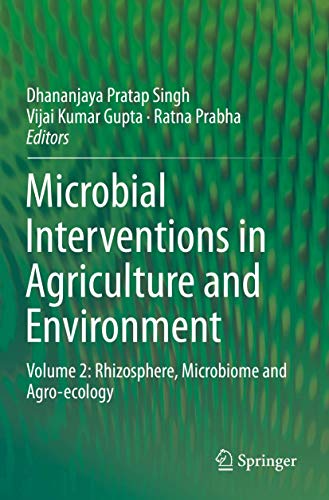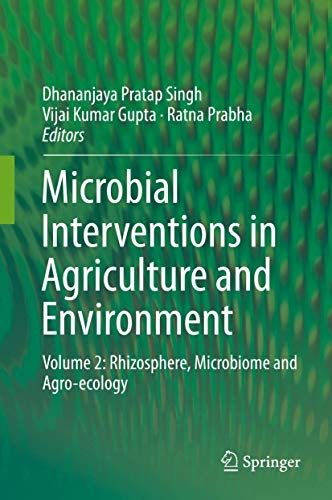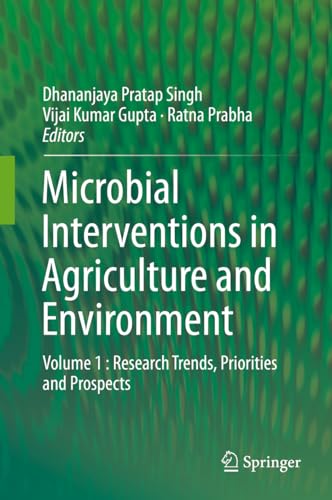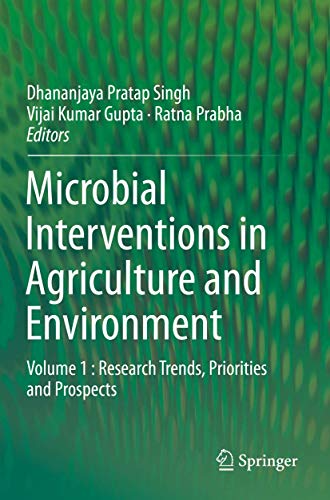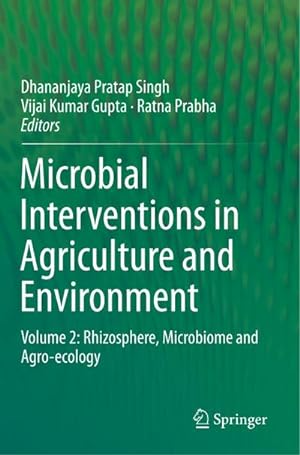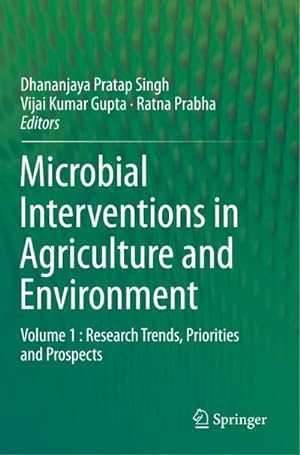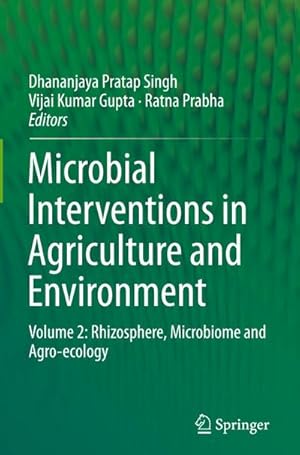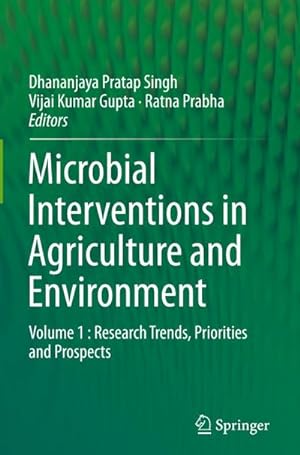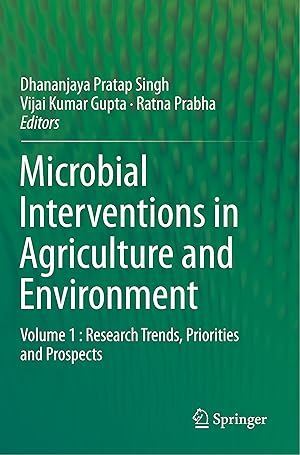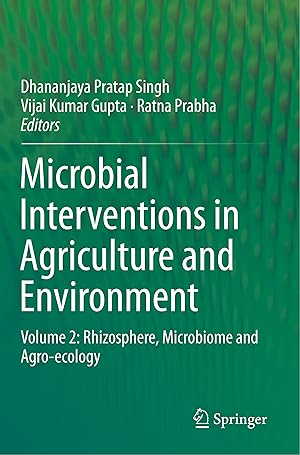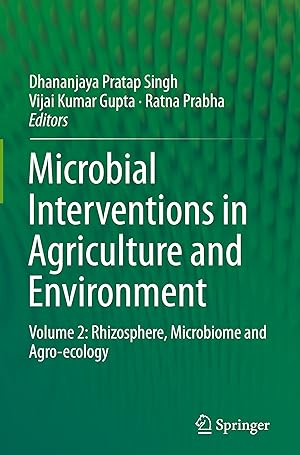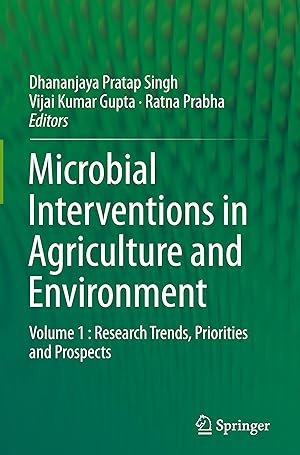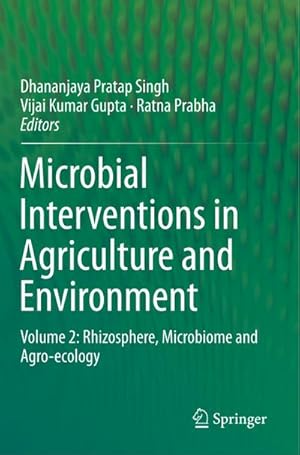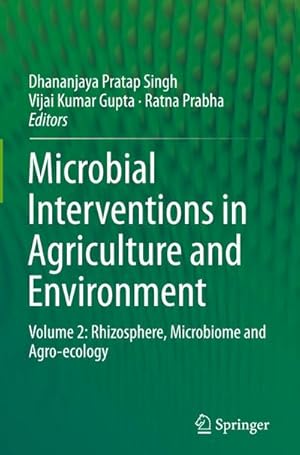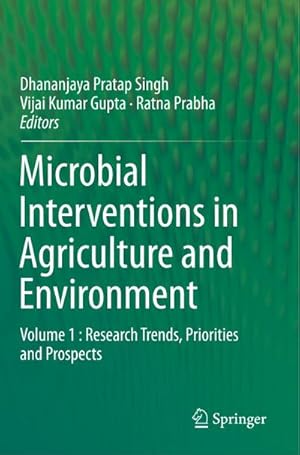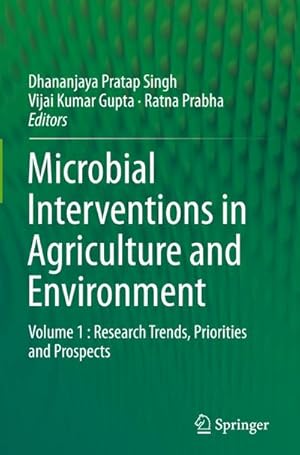Singh Dhananjaya Pratap Gupta Vijai (33 results)
Search filters
Product Type
- All Product Types
- Books (33)
- Magazines & Periodicals (No further results match this refinement)
- Comics (No further results match this refinement)
- Sheet Music (No further results match this refinement)
- Art, Prints & Posters (No further results match this refinement)
- Photographs (No further results match this refinement)
- Maps (No further results match this refinement)
- Manuscripts & Paper Collectibles (No further results match this refinement)
Condition Learn more
- New (31)
- As New, Fine or Near Fine (No further results match this refinement)
- Very Good or Good (No further results match this refinement)
- Fair or Poor (No further results match this refinement)
- As Described (2)
Binding
Collectible Attributes
- First Edition (1)
- Signed (No further results match this refinement)
- Dust Jacket (No further results match this refinement)
- Seller-Supplied Images (16)
- Not Print on Demand (17)
Language (1)
Free Shipping
- Free Shipping to U.S.A. (No further results match this refinement)
Seller Location
Seller Rating
-
Microbial Interventions in Agriculture and Environment. Volume 2: Rhizosphere, Microbiome and Agro-ecology.
Published by Singapore, Springer., 2019
ISBN 10: 9811383855 ISBN 13: 9789811383854
Language: English
Seller: Universitätsbuchhandlung Herta Hold GmbH, Berlin, Germany
US$ 25.15
Convert currencyUS$ 34.89 shipping from Germany to U.S.A.Quantity: 1 available
Add to basketXIV, 573 p. Softcover. Versand aus Deutschland / We dispatch from Germany via Air Mail. Einband bestoßen, daher Mängelexemplar gestempelt, sonst sehr guter Zustand. Imperfect copy due to slightly bumped cover, apart from this in very good condition. Stamped. Sprache: Englisch.
-
Microbial Interventions in Agriculture and Environment: Volume 2: Rhizosphere, Microbiome and Agro-ecology
Seller: SpringBooks, Berlin, Germany
First Edition
US$ 70.02
Convert currencyUS$ 34.77 shipping from Germany to U.S.A.Quantity: 1 available
Add to basketHardcover. Condition: Very Good. 1. Auflage. unread, some shelfwear.
-
Microbial Interventions in Agriculture and Environment: Volume 1 : Research Trends, Priorities and Prospects
Seller: Books Puddle, New York, NY, U.S.A.
Condition: New. pp. 615.
-
Microbial Interventions in Agriculture and Environment: Volume 2: Rhizosphere, Microbiome and Agro-ecology
Seller: Books Puddle, New York, NY, U.S.A.
Condition: New. 1st ed. 2019 edition NO-PA16APR2015-KAP.
-
Condition: New. pp. XIV, 573 34 illus., 27 illus. in color. 1 Edition NO-PA16APR2015-KAP.
-
Microbial Interventions in Agriculture and Environment
Published by Springer Nature Singapore, Springer Nature Singapore Nov 2020, 2020
ISBN 10: 9811383855 ISBN 13: 9789811383854
Language: English
Seller: buchversandmimpf2000, Emtmannsberg, BAYE, Germany
US$ 256.33
Convert currencyUS$ 69.78 shipping from Germany to U.S.A.Quantity: 2 available
Add to basketTaschenbuch. Condition: Neu. Neuware -Microbial communities and their functions play a crucial role in the management of ecological, environmental and agricultural health on the Earth. Microorganisms are the key identified players for plant growth promotion, plant immunization, disease suppression, induced resistance and tolerance against stresses as the indicative parameters of improved crop productivity and sustainable soil health. Beneficial belowground microbial interactions with the rhizosphere help plants mitigate drought and salinity stresses and alleviate water stresses under the unfavorable environmental conditions in the native soils. Microorganisms that are inhabitants of such environmental conditions have potential solutions for them. There are potential microbial communities that can degrade xenobiotic compounds, pesticides and toxic industrial chemicals and help remediate even heavy metals, and thus they find enormous applications in environmental remediation. Microbes have developed intrinsic metabolic capabilities with specific metabolic networks while inhabiting under specific conditions for many generations and, so play a crucial role. The book Microbial Interventions in Agriculture and Environment is an effort to compile and present a great volume of authentic, high-quality, socially-viable, practical and implementable research and technological work on microbial implications. The whole content of the volume covers protocols, methodologies, applications, interactions, role and impact of research and development aspects on microbial interventions and technological outcomes in prospects of agricultural and environmental domain including crop production, plan-soil health management, food & nutrition, nutrient recycling, land reclamation, clean water systems and agro-waste management, biodegradation & bioremediation, biomass to bioenergy, sanitation and rural livelihood security. The covered topics and sub-topics of the microbial domain have high implications for the targeted and wide readership of researchers, students, faculty and scientists working on these areas along with the agri-activists, policymakers, environmentalists, advisors etc. in the Government, industries and non-government level for reference and knowledge generation.Springer Verlag GmbH, Tiergartenstr. 17, 69121 Heidelberg 588 pp. Englisch.
-
Microbial Interventions in Agriculture and Environment
Published by Springer Nature Singapore, Springer Nature Singapore Dez 2020, 2020
ISBN 10: 9811383936 ISBN 13: 9789811383939
Language: English
Seller: buchversandmimpf2000, Emtmannsberg, BAYE, Germany
US$ 256.33
Convert currencyUS$ 69.78 shipping from Germany to U.S.A.Quantity: 2 available
Add to basketTaschenbuch. Condition: Neu. Neuware -Microbial communities and their functions play a crucial role in the management of ecological, environmental and agricultural health on the Earth. Microorganisms are the key identified players for plant growth promotion, plant immunization, disease suppression, induced resistance and tolerance against stresses as the indicative parameters of improved crop productivity and sustainable soil health. Beneficial belowground microbial interactions with the rhizosphere help plants mitigate drought and salinity stresses and alleviate water stresses under the unfavorable environmental conditions in the native soils. Microorganisms that are inhabitants of such environmental conditions have potential solutions for them. There are potential microbial communities that can degrade xenobiotic compounds, pesticides and toxic industrial chemicals and help remediate even heavy metals, and thus they find enormous applications in environmental remediation. Microbes have developed intrinsic metabolic capabilities with specific metabolic networks while inhabiting under specific conditions for many generations and, so play a crucial role. The book Microbial Interventions in Agriculture and Environment is an effort to compile and present a great volume of authentic, high-quality, socially-viable, practical and implementable research and technological work on microbial implications. The whole content of the volume covers protocols, methodologies, applications, interactions, role and impact of research and development aspects on microbial interventions and technological outcomes in prospects of agricultural and environmental domain including crop production, plan-soil health management, food & nutrition, nutrient recycling, land reclamation, clean water systems and agro-waste management, biodegradation & bioremediation, biomass to bioenergy, sanitation and rural livelihood security. The covered topics and sub-topics of the microbial domain have high implications for the targeted and wide readership of researchers, students, faculty and scientists working on these areas along with the agri-activists, policymakers, environmentalists, advisors etc. in the Government, industries and non-government level for reference and knowledge generation.Springer Verlag GmbH, Tiergartenstr. 17, 69121 Heidelberg 616 pp. Englisch.
-
Microbial Interventions in Agriculture and Environment
Published by Springer Nature Singapore, Springer Nature Singapore Nov 2019, 2019
ISBN 10: 9811383820 ISBN 13: 9789811383823
Language: English
Seller: buchversandmimpf2000, Emtmannsberg, BAYE, Germany
US$ 256.33
Convert currencyUS$ 69.78 shipping from Germany to U.S.A.Quantity: 2 available
Add to basketBuch. Condition: Neu. Neuware -Microbial communities and their functions play a crucial role in the management of ecological, environmental and agricultural health on the Earth. Microorganisms are the key identified players for plant growth promotion, plant immunization, disease suppression, induced resistance and tolerance against stresses as the indicative parameters of improved crop productivity and sustainable soil health. Beneficial belowground microbial interactions with the rhizosphere help plants mitigate drought and salinity stresses and alleviate water stresses under the unfavorable environmental conditions in the native soils. Microorganisms that are inhabitants of such environmental conditions have potential solutions for them. There are potential microbial communities that can degrade xenobiotic compounds, pesticides and toxic industrial chemicals and help remediate even heavy metals, and thus they find enormous applications in environmental remediation. Microbes have developed intrinsic metabolic capabilities with specific metabolic networks while inhabiting under specific conditions for many generations and, so play a crucial role. The book Microbial Interventions in Agriculture and Environment is an effort to compile and present a great volume of authentic, high-quality, socially-viable, practical and implementable research and technological work on microbial implications. The whole content of the volume covers protocols, methodologies, applications, interactions, role and impact of research and development aspects on microbial interventions and technological outcomes in prospects of agricultural and environmental domain including crop production, plan-soil health management, food & nutrition, nutrient recycling, land reclamation, clean water systems and agro-waste management, biodegradation & bioremediation, biomass to bioenergy, sanitation and rural livelihood security. The covered topics and sub-topics of the microbial domain have high implications for the targeted and wide readership of researchers, students, faculty and scientists working on these areas along with the agri-activists, policymakers, environmentalists, advisors etc. in the Government, industries and non-government level for reference and knowledge generation.Springer Verlag GmbH, Tiergartenstr. 17, 69121 Heidelberg 588 pp. Englisch.
-
Microbial Interventions in Agriculture and Environment
Published by Springer Nature Singapore, Springer Nature Singapore Dez 2019, 2019
ISBN 10: 9811383901 ISBN 13: 9789811383908
Language: English
Seller: buchversandmimpf2000, Emtmannsberg, BAYE, Germany
US$ 256.33
Convert currencyUS$ 69.78 shipping from Germany to U.S.A.Quantity: 2 available
Add to basketBuch. Condition: Neu. Neuware -Microbial communities and their functions play a crucial role in the management of ecological, environmental and agricultural health on the Earth. Microorganisms are the key identified players for plant growth promotion, plant immunization, disease suppression, induced resistance and tolerance against stresses as the indicative parameters of improved crop productivity and sustainable soil health. Beneficial belowground microbial interactions with the rhizosphere help plants mitigate drought and salinity stresses and alleviate water stresses under the unfavorable environmental conditions in the native soils. Microorganisms that are inhabitants of such environmental conditions have potential solutions for them. There are potential microbial communities that can degrade xenobiotic compounds, pesticides and toxic industrial chemicals and help remediate even heavy metals, and thus they find enormous applications in environmental remediation. Microbes have developed intrinsic metabolic capabilities with specific metabolic networks while inhabiting under specific conditions for many generations and, so play a crucial role. The book Microbial Interventions in Agriculture and Environment is an effort to compile and present a great volume of authentic, high-quality, socially-viable, practical and implementable research and technological work on microbial implications. The whole content of the volume covers protocols, methodologies, applications, interactions, role and impact of research and development aspects on microbial interventions and technological outcomes in prospects of agricultural and environmental domain including crop production, plan-soil health management, food & nutrition, nutrient recycling, land reclamation, clean water systems and agro-waste management, biodegradation & bioremediation, biomass to bioenergy, sanitation and rural livelihood security. The covered topics and sub-topics of the microbial domain have high implications for the targeted and wide readership of researchers, students, faculty and scientists working on these areas along with the agri-activists, policymakers, environmentalists, advisors etc. in the Government, industries and non-government level for reference and knowledge generation.Springer Verlag GmbH, Tiergartenstr. 17, 69121 Heidelberg 616 pp. Englisch.
-
Microbial Interventions in Agriculture and Environment: Volume 1 : Research Trends, Priorities and Prospects
Seller: Books Puddle, New York, NY, U.S.A.
Condition: New. 1st ed. 2019 edition NO-PA16APR2015-KAP.
-
Microbial Interventions in Agriculture and Environment : Volume 2: Rhizosphere, Microbiome and Agro-ecology
Published by Springer Nature Singapore, Springer Nature Singapore, 2020
ISBN 10: 9811383855 ISBN 13: 9789811383854
Language: English
Seller: AHA-BUCH GmbH, Einbeck, Germany
US$ 262.77
Convert currencyUS$ 75.60 shipping from Germany to U.S.A.Quantity: 1 available
Add to basketTaschenbuch. Condition: Neu. Druck auf Anfrage Neuware - Printed after ordering - Microbial communities and their functions play a crucial role in the management of ecological, environmental and agricultural health on the Earth. Microorganisms are the key identified players for plant growth promotion, plant immunization, disease suppression, induced resistance and tolerance against stresses as the indicative parameters of improved crop productivity and sustainable soil health. Beneficial belowground microbial interactions with the rhizosphere help plants mitigate drought and salinity stresses and alleviate water stresses under the unfavorable environmental conditions in the native soils. Microorganisms that are inhabitants of such environmental conditions have potential solutions for them. There are potential microbial communities that can degrade xenobiotic compounds, pesticides and toxic industrial chemicals and help remediate even heavy metals, and thus they find enormous applications in environmental remediation. Microbes have developed intrinsic metabolic capabilities with specific metabolic networks while inhabiting under specific conditions for many generations and, so play a crucial role.The book Microbial Interventions in Agriculture and Environment is an effort to compile and present a great volume of authentic, high-quality, socially-viable, practical and implementable research and technological work on microbial implications. The whole content of the volume covers protocols, methodologies, applications, interactions, role and impact of research and development aspects on microbial interventions and technological outcomes in prospects of agricultural and environmental domain including crop production, plan-soil health management, food & nutrition,nutrient recycling, land reclamation, clean water systems and agro-waste management, biodegradation & bioremediation, biomass to bioenergy, sanitation and rural livelihood security. The covered topics and sub-topics of the microbial domain have high implications for the targeted and wide readership of researchers, students, faculty and scientists working on these areas along with the agri-activists, policymakers, environmentalists, advisors etc. in the Government, industries and non-government level for reference and knowledge generation.
-
Microbial Interventions in Agriculture and Environment : Volume 1 : Research Trends, Priorities and Prospects
Published by Springer Nature Singapore, Springer Nature Singapore, 2020
ISBN 10: 9811383936 ISBN 13: 9789811383939
Language: English
Seller: AHA-BUCH GmbH, Einbeck, Germany
US$ 262.77
Convert currencyUS$ 75.88 shipping from Germany to U.S.A.Quantity: 1 available
Add to basketTaschenbuch. Condition: Neu. Druck auf Anfrage Neuware - Printed after ordering - Microbial communities and their functions play a crucial role in the management of ecological, environmental and agricultural health on the Earth. Microorganisms are the key identified players for plant growth promotion, plant immunization, disease suppression, induced resistance and tolerance against stresses as the indicative parameters of improved crop productivity and sustainable soil health. Beneficial belowground microbial interactions with the rhizosphere help plants mitigate drought and salinity stresses and alleviate water stresses under the unfavorable environmental conditions in the native soils. Microorganisms that are inhabitants of such environmental conditions have potential solutions for them. There are potential microbial communities that can degrade xenobiotic compounds, pesticides and toxic industrial chemicals and help remediate even heavy metals, and thus they find enormous applications in environmental remediation. Microbes have developed intrinsic metabolic capabilities with specific metabolic networks while inhabiting under specific conditions for many generations and, so play a crucial role.The book Microbial Interventions in Agriculture and Environment is an effort to compile and present a great volume of authentic, high-quality, socially-viable, practical and implementable research and technological work on microbial implications. The whole content of the volume covers protocols, methodologies, applications, interactions, role and impact of research and development aspects on microbial interventions and technological outcomes in prospects of agricultural and environmental domain including crop production, plan-soil health management, food & nutrition,nutrient recycling, land reclamation, clean water systems and agro-waste management, biodegradation & bioremediation, biomass to bioenergy, sanitation and rural livelihood security. The covered topics and sub-topics of the microbial domain have high implications for the targeted and wide readership of researchers, students, faculty and scientists working on these areas along with the agri-activists, policymakers, environmentalists, advisors etc. in the Government, industries and non-government level for reference and knowledge generation.
-
Microbial Interventions in Agriculture and Environment : Volume 2: Rhizosphere, Microbiome and Agro-ecology
Published by Springer Nature Singapore, Springer Nature Singapore, 2019
ISBN 10: 9811383820 ISBN 13: 9789811383823
Language: English
Seller: AHA-BUCH GmbH, Einbeck, Germany
US$ 262.77
Convert currencyUS$ 76.44 shipping from Germany to U.S.A.Quantity: 1 available
Add to basketBuch. Condition: Neu. Druck auf Anfrage Neuware - Printed after ordering - Microbial communities and their functions play a crucial role in the management of ecological, environmental and agricultural health on the Earth. Microorganisms are the key identified players for plant growth promotion, plant immunization, disease suppression, induced resistance and tolerance against stresses as the indicative parameters of improved crop productivity and sustainable soil health. Beneficial belowground microbial interactions with the rhizosphere help plants mitigate drought and salinity stresses and alleviate water stresses under the unfavorable environmental conditions in the native soils. Microorganisms that are inhabitants of such environmental conditions have potential solutions for them. There are potential microbial communities that can degrade xenobiotic compounds, pesticides and toxic industrial chemicals and help remediate even heavy metals, and thus they find enormous applications in environmental remediation. Microbes have developed intrinsic metabolic capabilities with specific metabolic networks while inhabiting under specific conditions for many generations and, so play a crucial role.The book Microbial Interventions in Agriculture and Environment is an effort to compile and present a great volume of authentic, high-quality, socially-viable, practical and implementable research and technological work on microbial implications. The whole content of the volume covers protocols, methodologies, applications, interactions, role and impact of research and development aspects on microbial interventions and technological outcomes in prospects of agricultural and environmental domain including crop production, plan-soil health management, food & nutrition,nutrient recycling, land reclamation, clean water systems and agro-waste management, biodegradation & bioremediation, biomass to bioenergy, sanitation and rural livelihood security. The covered topics and sub-topics of the microbial domain have high implications for the targeted and wide readership of researchers, students, faculty and scientists working on these areas along with the agri-activists, policymakers, environmentalists, advisors etc. in the Government, industries and non-government level for reference and knowledge generation.
-
Microbial Interventions in Agriculture and Environment : Volume 1 : Research Trends, Priorities and Prospects
Published by Springer Nature Singapore, Springer Nature Singapore, 2019
ISBN 10: 9811383901 ISBN 13: 9789811383908
Language: English
Seller: AHA-BUCH GmbH, Einbeck, Germany
US$ 262.77
Convert currencyUS$ 76.71 shipping from Germany to U.S.A.Quantity: 1 available
Add to basketBuch. Condition: Neu. Druck auf Anfrage Neuware - Printed after ordering - Microbial communities and their functions play a crucial role in the management of ecological, environmental and agricultural health on the Earth. Microorganisms are the key identified players for plant growth promotion, plant immunization, disease suppression, induced resistance and tolerance against stresses as the indicative parameters of improved crop productivity and sustainable soil health. Beneficial belowground microbial interactions with the rhizosphere help plants mitigate drought and salinity stresses and alleviate water stresses under the unfavorable environmental conditions in the native soils. Microorganisms that are inhabitants of such environmental conditions have potential solutions for them. There are potential microbial communities that can degrade xenobiotic compounds, pesticides and toxic industrial chemicals and help remediate even heavy metals, and thus they find enormous applications in environmental remediation. Microbes have developed intrinsic metabolic capabilities with specific metabolic networks while inhabiting under specific conditions for many generations and, so play a crucial role.The book Microbial Interventions in Agriculture and Environment is an effort to compile and present a great volume of authentic, high-quality, socially-viable, practical and implementable research and technological work on microbial implications. The whole content of the volume covers protocols, methodologies, applications, interactions, role and impact of research and development aspects on microbial interventions and technological outcomes in prospects of agricultural and environmental domain including crop production, plan-soil health management, food & nutrition,nutrient recycling, land reclamation, clean water systems and agro-waste management, biodegradation & bioremediation, biomass to bioenergy, sanitation and rural livelihood security. The covered topics and sub-topics of the microbial domain have high implications for the targeted and wide readership of researchers, students, faculty and scientists working on these areas along with the agri-activists, policymakers, environmentalists, advisors etc. in the Government, industries and non-government level for reference and knowledge generation.
-
Microbial Interventions in Agriculture and Environment: Volume 2: Rhizosphere, Microbiome and Agro-ecology
Seller: Mispah books, Redhill, SURRE, United Kingdom
US$ 368.54
Convert currencyUS$ 33.50 shipping from United Kingdom to U.S.A.Quantity: 1 available
Add to basketHardcover. Condition: New. New. book.
-
Microbial Interventions in Agriculture and Environment: Volume 1 : Research Trends, Priorities and Prospects
Seller: Mispah books, Redhill, SURRE, United Kingdom
US$ 368.54
Convert currencyUS$ 33.50 shipping from United Kingdom to U.S.A.Quantity: 1 available
Add to basketHardcover. Condition: New. New. book.
-
Microbial Interventions in Agriculture and Environment: Volume 2: Rhizosphere, Microbiome and Agro-ecology
Seller: Mispah books, Redhill, SURRE, United Kingdom
US$ 368.54
Convert currencyUS$ 33.50 shipping from United Kingdom to U.S.A.Quantity: 1 available
Add to basketPaperback. Condition: New. New. book.
-
Microbial Interventions in Agriculture and Environment
Seller: moluna, Greven, Germany
US$ 215.69
Convert currencyUS$ 56.97 shipping from Germany to U.S.A.Quantity: Over 20 available
Add to basketCondition: New. Dieser Artikel ist ein Print on Demand Artikel und wird nach Ihrer Bestellung fuer Sie gedruckt. Provides authentic and well-presented content with multiple microbial functions and their benefits in agro-ecology for readers to learn beneficial microbial processes, mechanisms and gaps in the knowledge    Presents well-written and do.
-
Microbial Interventions in Agriculture and Environment
Published by Springer Nature Singapore, 2020
ISBN 10: 9811383855 ISBN 13: 9789811383854
Language: English
Seller: moluna, Greven, Germany
US$ 215.69
Convert currencyUS$ 56.97 shipping from Germany to U.S.A.Quantity: Over 20 available
Add to basketCondition: New. Dieser Artikel ist ein Print on Demand Artikel und wird nach Ihrer Bestellung fuer Sie gedruckt. Provides authentic and well-presented content with multiple microbial functions and their benefits in agro-ecology for readers to learn beneficial microbial processes, mechanisms and gaps in the knowledge   Presents well-written and docu.
-
Microbial Interventions in Agriculture and Environment
Published by Springer Nature Singapore, 2019
ISBN 10: 9811383820 ISBN 13: 9789811383823
Language: English
Seller: moluna, Greven, Germany
US$ 215.69
Convert currencyUS$ 56.97 shipping from Germany to U.S.A.Quantity: Over 20 available
Add to basketGebunden. Condition: New. Dieser Artikel ist ein Print on Demand Artikel und wird nach Ihrer Bestellung fuer Sie gedruckt. Provides authentic and well-presented content with multiple microbial functions and their benefits in agro-ecology for readers to learn beneficial microbial processes, mechanisms and gaps in the knowledge   Presents well-written and docu.
-
Microbial Interventions in Agriculture and Environment
Seller: moluna, Greven, Germany
US$ 215.69
Convert currencyUS$ 56.97 shipping from Germany to U.S.A.Quantity: Over 20 available
Add to basketGebunden. Condition: New. Dieser Artikel ist ein Print on Demand Artikel und wird nach Ihrer Bestellung fuer Sie gedruckt. Provides authentic and well-presented content with multiple microbial functions and their benefits in agro-ecology for readers to learn beneficial microbial processes, mechanisms and gaps in the knowledge    Presents well-written and do.
-
Microbial Interventions in Agriculture and Environment
Published by Springer Nature Singapore Nov 2020, 2020
ISBN 10: 9811383855 ISBN 13: 9789811383854
Language: English
Seller: BuchWeltWeit Ludwig Meier e.K., Bergisch Gladbach, Germany
US$ 256.33
Convert currencyUS$ 26.75 shipping from Germany to U.S.A.Quantity: 2 available
Add to basketTaschenbuch. Condition: Neu. This item is printed on demand - it takes 3-4 days longer - Neuware -Microbial communities and their functions play a crucial role in the management of ecological, environmental and agricultural health on the Earth. Microorganisms are the key identified players for plant growth promotion, plant immunization, disease suppression, induced resistance and tolerance against stresses as the indicative parameters of improved crop productivity and sustainable soil health. Beneficial belowground microbial interactions with the rhizosphere help plants mitigate drought and salinity stresses and alleviate water stresses under the unfavorable environmental conditions in the native soils. Microorganisms that are inhabitants of such environmental conditions have potential solutions for them. There are potential microbial communities that can degrade xenobiotic compounds, pesticides and toxic industrial chemicals and help remediate even heavy metals, and thus they find enormous applications in environmental remediation. Microbes have developed intrinsic metabolic capabilities with specific metabolic networks while inhabiting under specific conditions for many generations and, so play a crucial role.The book Microbial Interventions in Agriculture and Environment is an effort to compile and present a great volume of authentic, high-quality, socially-viable, practical and implementable research and technological work on microbial implications. The whole content of the volume covers protocols, methodologies, applications, interactions, role and impact of research and development aspects on microbial interventions and technological outcomes in prospects of agricultural and environmental domain including crop production, plan-soil health management, food & nutrition,nutrient recycling, land reclamation, clean water systems and agro-waste management, biodegradation & bioremediation, biomass to bioenergy, sanitation and rural livelihood security. The covered topics and sub-topics of the microbial domain have high implications for the targeted and wide readership of researchers, students, faculty and scientists working on these areas along with the agri-activists, policymakers, environmentalists, advisors etc. in the Government, industries and non-government level for reference and knowledge generation. 588 pp. Englisch.
-
Microbial Interventions in Agriculture and Environment
Published by Springer Nature Singapore Nov 2019, 2019
ISBN 10: 9811383820 ISBN 13: 9789811383823
Language: English
Seller: BuchWeltWeit Ludwig Meier e.K., Bergisch Gladbach, Germany
US$ 256.33
Convert currencyUS$ 26.75 shipping from Germany to U.S.A.Quantity: 2 available
Add to basketBuch. Condition: Neu. This item is printed on demand - it takes 3-4 days longer - Neuware -Microbial communities and their functions play a crucial role in the management of ecological, environmental and agricultural health on the Earth. Microorganisms are the key identified players for plant growth promotion, plant immunization, disease suppression, induced resistance and tolerance against stresses as the indicative parameters of improved crop productivity and sustainable soil health. Beneficial belowground microbial interactions with the rhizosphere help plants mitigate drought and salinity stresses and alleviate water stresses under the unfavorable environmental conditions in the native soils. Microorganisms that are inhabitants of such environmental conditions have potential solutions for them. There are potential microbial communities that can degrade xenobiotic compounds, pesticides and toxic industrial chemicals and help remediate even heavy metals, and thus they find enormous applications in environmental remediation. Microbes have developed intrinsic metabolic capabilities with specific metabolic networks while inhabiting under specific conditions for many generations and, so play a crucial role.The book Microbial Interventions in Agriculture and Environment is an effort to compile and present a great volume of authentic, high-quality, socially-viable, practical and implementable research and technological work on microbial implications. The whole content of the volume covers protocols, methodologies, applications, interactions, role and impact of research and development aspects on microbial interventions and technological outcomes in prospects of agricultural and environmental domain including crop production, plan-soil health management, food & nutrition,nutrient recycling, land reclamation, clean water systems and agro-waste management, biodegradation & bioremediation, biomass to bioenergy, sanitation and rural livelihood security. The covered topics and sub-topics of the microbial domain have high implications for the targeted and wide readership of researchers, students, faculty and scientists working on these areas along with the agri-activists, policymakers, environmentalists, advisors etc. in the Government, industries and non-government level for reference and knowledge generation. 588 pp. Englisch.
-
Microbial Interventions in Agriculture and Environment
Published by Springer Nature Singapore Dez 2020, 2020
ISBN 10: 9811383936 ISBN 13: 9789811383939
Language: English
Seller: BuchWeltWeit Ludwig Meier e.K., Bergisch Gladbach, Germany
US$ 256.33
Convert currencyUS$ 26.75 shipping from Germany to U.S.A.Quantity: 2 available
Add to basketTaschenbuch. Condition: Neu. This item is printed on demand - it takes 3-4 days longer - Neuware -Microbial communities and their functions play a crucial role in the management of ecological, environmental and agricultural health on the Earth. Microorganisms are the key identified players for plant growth promotion, plant immunization, disease suppression, induced resistance and tolerance against stresses as the indicative parameters of improved crop productivity and sustainable soil health. Beneficial belowground microbial interactions with the rhizosphere help plants mitigate drought and salinity stresses and alleviate water stresses under the unfavorable environmental conditions in the native soils. Microorganisms that are inhabitants of such environmental conditions have potential solutions for them. There are potential microbial communities that can degrade xenobiotic compounds, pesticides and toxic industrial chemicals and help remediate even heavy metals, and thus they find enormous applications in environmental remediation. Microbes have developed intrinsic metabolic capabilities with specific metabolic networks while inhabiting under specific conditions for many generations and, so play a crucial role.The book Microbial Interventions in Agriculture and Environment is an effort to compile and present a great volume of authentic, high-quality, socially-viable, practical and implementable research and technological work on microbial implications. The whole content of the volume covers protocols, methodologies, applications, interactions, role and impact of research and development aspects on microbial interventions and technological outcomes in prospects of agricultural and environmental domain including crop production, plan-soil health management, food & nutrition,nutrient recycling, land reclamation, clean water systems and agro-waste management, biodegradation & bioremediation, biomass to bioenergy, sanitation and rural livelihood security. The covered topics and sub-topics of the microbial domain have high implications for the targeted and wide readership of researchers, students, faculty and scientists working on these areas along with the agri-activists, policymakers, environmentalists, advisors etc. in the Government, industries and non-government level for reference and knowledge generation. 616 pp. Englisch.
-
Microbial Interventions in Agriculture and Environment
Published by Springer Nature Singapore Dez 2019, 2019
ISBN 10: 9811383901 ISBN 13: 9789811383908
Language: English
Seller: BuchWeltWeit Ludwig Meier e.K., Bergisch Gladbach, Germany
US$ 256.33
Convert currencyUS$ 26.75 shipping from Germany to U.S.A.Quantity: 2 available
Add to basketBuch. Condition: Neu. This item is printed on demand - it takes 3-4 days longer - Neuware -Microbial communities and their functions play a crucial role in the management of ecological, environmental and agricultural health on the Earth. Microorganisms are the key identified players for plant growth promotion, plant immunization, disease suppression, induced resistance and tolerance against stresses as the indicative parameters of improved crop productivity and sustainable soil health. Beneficial belowground microbial interactions with the rhizosphere help plants mitigate drought and salinity stresses and alleviate water stresses under the unfavorable environmental conditions in the native soils. Microorganisms that are inhabitants of such environmental conditions have potential solutions for them. There are potential microbial communities that can degrade xenobiotic compounds, pesticides and toxic industrial chemicals and help remediate even heavy metals, and thus they find enormous applications in environmental remediation. Microbes have developed intrinsic metabolic capabilities with specific metabolic networks while inhabiting under specific conditions for many generations and, so play a crucial role.The book Microbial Interventions in Agriculture and Environment is an effort to compile and present a great volume of authentic, high-quality, socially-viable, practical and implementable research and technological work on microbial implications. The whole content of the volume covers protocols, methodologies, applications, interactions, role and impact of research and development aspects on microbial interventions and technological outcomes in prospects of agricultural and environmental domain including crop production, plan-soil health management, food & nutrition,nutrient recycling, land reclamation, clean water systems and agro-waste management, biodegradation & bioremediation, biomass to bioenergy, sanitation and rural livelihood security. The covered topics and sub-topics of the microbial domain have high implications for the targeted and wide readership of researchers, students, faculty and scientists working on these areas along with the agri-activists, policymakers, environmentalists, advisors etc. in the Government, industries and non-government level for reference and knowledge generation. 616 pp. Englisch.
-
Microbial Interventions in Agriculture and Environment: Volume 1 : Research Trends, Priorities and Prospects
Seller: Majestic Books, Hounslow, United Kingdom
US$ 302.67
Convert currencyUS$ 8.71 shipping from United Kingdom to U.S.A.Quantity: 4 available
Add to basketCondition: New. Print on Demand pp. 615.
-
Microbial Interventions in Agriculture and Environment: Volume 2: Rhizosphere, Microbiome and Agro-ecology
Seller: Majestic Books, Hounslow, United Kingdom
US$ 305.19
Convert currencyUS$ 8.71 shipping from United Kingdom to U.S.A.Quantity: 4 available
Add to basketCondition: New. Print on Demand.
-
Microbial Interventions in Agriculture and Environment
Seller: Majestic Books, Hounslow, United Kingdom
US$ 305.19
Convert currencyUS$ 8.71 shipping from United Kingdom to U.S.A.Quantity: 4 available
Add to basketCondition: New. Print on Demand pp. XIV, 573 34 illus., 27 illus. in color.
-
Microbial Interventions in Agriculture and Environment: Volume 1 : Research Trends, Priorities and Prospects
Seller: Biblios, Frankfurt am main, HESSE, Germany
US$ 325.33
Convert currencyUS$ 11.57 shipping from Germany to U.S.A.Quantity: 4 available
Add to basketCondition: New. PRINT ON DEMAND pp. 615.
-
Microbial Interventions in Agriculture and Environment: Volume 2: Rhizosphere, Microbiome and Agro-ecology
Seller: Biblios, Frankfurt am main, HESSE, Germany
US$ 328.04
Convert currencyUS$ 11.57 shipping from Germany to U.S.A.Quantity: 4 available
Add to basketCondition: New. PRINT ON DEMAND.


